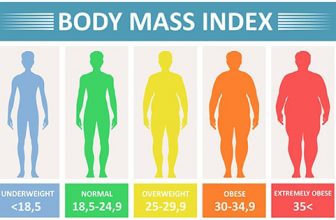
Let me guess—you’re here because at some point, either for yourself or someone you care about, you’ve asked: “Can protein make me grow taller?” I’ve had that same question pop up in conversations with parents, teenagers going through growth spurts, and even 20-something athletes hoping to squeeze out another inch. It’s a question loaded with hope—and a fair amount of misinformation.
Here’s the truth: protein plays a supporting role in height development, especially during childhood and adolescence. But it’s not some magical growth elixir. Your genetics are the lead actor. Protein? It’s more like the reliable supporting cast.
Now, let’s unpack this with a full, honest look—from the science of growth to how your diet (including supplements like NuBest Tall) fits into the picture.
How Height Growth Works: The Biology Behind It
So how exactly do you grow taller?
You grow through a combination of bone growth, hormone activity, and the gradual closure of your growth plates—those soft sections of cartilage at the ends of your long bones. During childhood and puberty, your pituitary gland releases human growth hormone (HGH), which signals your bones to grow. Another major player? IGF-1, a hormone that gets activated in response to protein and HGH levels.
Inside your bones, osteoblasts build new tissue while the epiphyseal plates (growth plates) stay open. That’s your window of opportunity for height. Once those plates close—usually around age 16 for girls and 18 for boys—your height potential is pretty much locked in.
But here’s what’s crucial: your body needs the right materials to fuel that growth, and protein is a big one.
Role of Protein in the Human Body
Let me put it this way: protein is the raw material your body uses to build itself.
Muscle tissue? Protein. Enzymes and hormones? Protein. Bone matrix? Yep—protein again, especially collagen.
During your peak growth years, your demand for essential amino acids—the building blocks of protein—skyrockets. Your body’s not just maintaining tissue at that point, it’s constructing new structures, especially in your bones and muscles.
From what I’ve seen, kids going through growth spurts benefit most when they’re consistently eating enough complete proteins (those with all nine essential amino acids). Think eggs, dairy, chicken, soy. Even leucine, a specific amino acid found in animal protein, is especially potent for muscle and bone protein synthesis.
Can Protein Really Make You Taller?
Here’s the million-dollar question, right?
If you’re still growing, yes—adequate protein can support your height potential. It won’t override your DNA, but it can help ensure you reach the height that your genetics allow. I’ve worked with families where a child wasn’t getting enough quality protein, and it showed in their growth percentiles. After a few months of improved nutrition (including supplementation in some cases), their numbers started climbing again.
But if you’re an adult? Sorry. Once your growth plates fuse, no amount of protein will stretch you taller. It might help improve posture, bone density, or muscle tone, but not actual skeletal height.
That said, NuBest Tall—a supplement I’ve recommended to a few families—focuses on the growth years, combining protein-building nutrients with bone-supportive ingredients like calcium, collagen, and herbal extracts. It’s not a shortcut, but it’s a smart addition if paired with proper diet, sleep, and activity.
Protein Requirements by Age and Gender in the US
Here’s what often gets overlooked: how much protein you need depends on your age, sex, and activity level.
According to the USDA, these are the baseline daily protein needs:
| Age Group | Boys (g/day) | Girls (g/day) |
|---|---|---|
| 4–8 years | 19 g | 19 g |
| 9–13 years | 34 g | 34 g |
| 14–18 years | 52 g | 46 g |
| 19+ (Adults) | 56 g | 46 g |
In my experience, these numbers are minimums. If your child is active, in sports, or going through puberty? You’ll want to be at the higher end—or even go slightly above with guidance from a nutritionist or pediatrician.
Best Protein Sources for Growth in the American Diet
Now, let’s talk food—because knowing how to grow taller with protein means knowing what to eat.
Here’s a list I often give parents (and yes, I sneak these into my own shopping cart too):
Top Animal-Based Proteins (complete):
- Eggs – Cheap, versatile, loaded with leucine.
- Milk & Greek Yogurt – Calcium + protein = great combo for bones.
- Chicken breast – Lean and packed with 25–30g per serving.
- Fish – Especially salmon, which has omega-3s too.
Top Plant-Based Proteins (pair for completeness):
- Tofu & Soy Milk – Soy is one of the few plant-based complete proteins.
- Beans + Rice – Together, they make a full amino acid profile.
- Quinoa – A complete protein grain, great for bowls or salads.
- Peanut Butter – Good in a pinch, but watch the sugar and salt.
And yeah, protein powders can help if you’re dealing with picky eaters or tight schedules. Just keep it balanced—don’t let shakes replace meals.
Does Protein Help Adults Grow Taller?
Alright, let’s bust a myth.
Protein will not help adults grow taller. That ship sailed once your growth plates fused.
But—and this is important—it can improve your posture, support your spine health, and help with muscle development, all of which can make you appear taller. I’ve had clients regain half an inch or more simply by strengthening their core and decompressing their spine through stretching.
So for adults, protein helps you stand taller, not grow taller.
Can Too Much Protein Affect Growth?
This one comes up a lot, especially from cautious parents.
Here’s what you need to know: excess protein isn’t usually dangerous, but it’s not always helpful either. The old myth that protein hurts your kidneys? That mostly applies to people with existing kidney disease.
But if your child’s diet is all shakes, bars, and meat with little fiber, fruit, or whole grains—yeah, that’s a problem. Balance matters. I’ve seen kids on ultra-high protein diets show signs of digestive issues or metabolic strain—not from the protein itself, but from the lack of variety in their diets.
Bottom line? Focus on whole foods first. Supplements like NuBest Tall can help fill in gaps, but they shouldn’t replace real meals.
Lifestyle Factors That Work With Protein to Support Growth
If you’re serious about maximizing height potential, you can’t just focus on protein. You need a full lifestyle approach.
Here’s the step-by-step routine I recommend:
- Sleep 8–10 hours: Growth hormone is released during deep sleep. No screen time before bed—trust me, it messes with melatonin.
- Eat every 3–4 hours: Steady nutrient intake matters. Include protein at every meal, not just dinner.
- Exercise regularly: Weight-bearing activities (like jumping, running) stimulate bone growth. Resistance training also boosts testosterone and HGH.
- Hydrate properly: Water supports nutrient transport and muscle recovery.
- Supplement wisely: If diet falls short, a trusted supplement like NuBest Tall can help. It contains collagen, calcium, and herbal extracts tailored for growth phases.
American Case Studies & Stats: Protein & Growth
Want real data? The CDC and NHANES studies have shown a link between protein intake and linear growth in children.
Yet, even in a country like the U.S., protein quality and access vary. Kids in low-income households often rely on cheap carbs instead of balanced meals, leading to stunted growth despite a calorie surplus. It’s wild—and deeply concerning.
Interestingly, in teens who did get enough protein—but from poor sources (like processed meat)—the growth outcomes weren’t great either. It reinforces what I’ve seen firsthand: protein quality is just as important as quantity.
Final Thoughts: Protein’s Role in Height — Fact vs Fiction
Here’s what it all comes down to:
- Protein is essential—but it’s not magic.
- It helps kids and teens reach their natural height potential, especially when paired with sleep, exercise, and balanced nutrition.
- Adults? Focus on posture, strength, and bone health—not miracles.
- Supplements like NuBest Tall can absolutely support height development if used thoughtfully during the right life stage.
What I’ve found is that consistency matters more than intensity. A little protein at every meal, regular sleep, basic movement—that’s your real growth formula.
So no, you don’t need to chase the latest protein shake trend. Just give your body the raw materials it needs—and do it while the window’s still open.







I have been checking out some of your stories and i can claim pretty nice stuff. I will definitely bookmark your site.